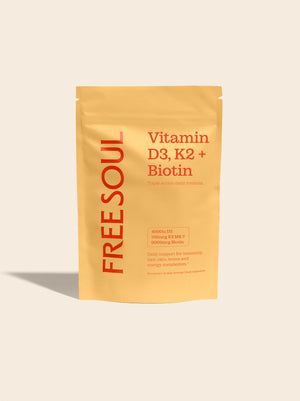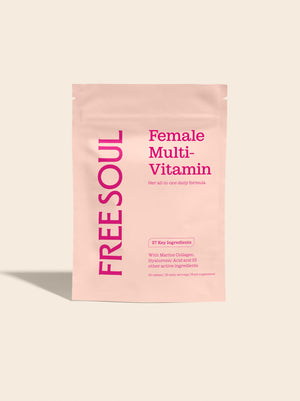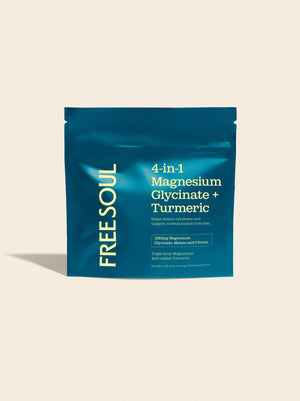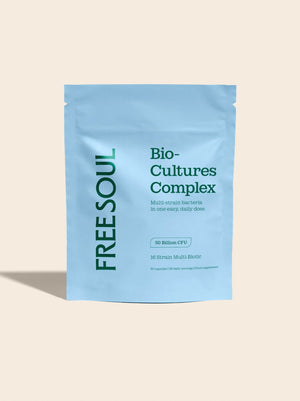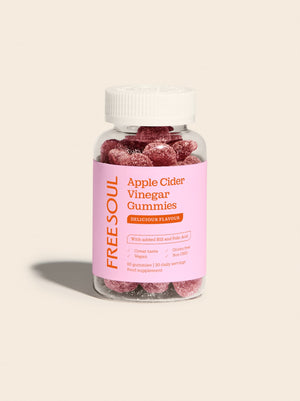Whether you’re grabbing a morning cup of coffee on the way to work or an afternoon pick-me-up, caffeine is deeply ingrained in our daily routines. We rely on it to boost our alertness, enhance our focus, and sometimes just to make it through the day.
But have you ever stopped to consider the impact of your caffeine intake on your body's stress response system?
Cortisol, often referred to as the "stress hormone," is produced in the adrenal glands. It plays a critical role in managing stress, regulating metabolism, reducing inflammation, and assisting with memory formulation. Cortisol follows a natural daily rhythm, peaking in the morning to help us wake up and gradually decreasing throughout the day.
The Impact of Cortisol Imbalance
Balanced cortisol levels are vital for health, regulating metabolic function, modulating the immune system, managing stress response and physiological health, but when these levels become chronically high or low, problems arise:
Chronic High Cortisol: Persistent stress can keep cortisol levels elevated, leading to weight gain, high blood pressure, disrupted sleep, mood swings, and increased risk of chronic conditions like heart disease and type 2 diabetes.
Chronic Low Cortisol: On the other end, chronically low cortisol can lead to chronic fatigue, dizziness, weight loss, and muscle weakness.
Caffeine and Cortisol
More and more people are quitting coffee due to its impact on cortisol levels. Caffeine's effect on cortisol is a subject of much interest and debate - while it's true that caffeine can increase cortisol levels, the story doesn't end there. The body's response to caffeine, particularly in the context of cortisol regulation, is complex and influenced by individual habits, particularly regular coffee consumption.
The Context of Consumption
The context in which caffeine is consumed also plays a crucial role in how it affects cortisol levels. For instance, the combination of caffeine intake with stress, like a hectic morning or a high-pressure work environment, can compound the cortisol response. However, in a relaxed setting, the impact of caffeine on cortisol can be markedly different.
Timing and Quantity
The timing and quantity of caffeine intake can influence its effect on cortisol levels. Drinking coffee early in the day, when the body's cortisol levels are naturally higher, may lead to a different physiological response than consuming caffeine later in the day when cortisol levels are typically lower. Additionally, moderate coffee consumption is less likely to have a dramatic effect on cortisol levels compared to high doses of caffeine.
Alternatives for Coffee Quitters
If you are looking to reduce your caffeine intake and explore the health benefits of coffee alternatives, here are some tasty options that can still provide an energy boost without the caffeine intensity of coffee:
1. Mushroom Coffee
Mushroom-infused coffee is a blend of ground coffee and medicinal mushrooms like Reishi, Shiitake, or Lion’s Mane. These mushrooms are known for their adaptogenic properties, helping to improve focus, manage stress and maintain balanced cortisol levels. Mushroom coffee blends are a delicious alternative to your morning coffee fix and provide sustained energy throughout the day, without the crashes.
2. Matcha Tea
Matcha tea is a type of green tea that contains a lower level of caffeine compared to coffee but is rich in L-theanine, an amino acid that promotes relaxation without drowsiness. The combination of caffeine and L-theanine can provide a stable and extended release of energy, improving focus and concentration without the cortisol spikes associated with coffee.
3. Free Soul Greens
A greens blend that does good and tastes good. Free Soul Greens is so much more than just a greens powder, it’s a superfood blend that supports your energy levels without the afternoon slumps that come with caffeine. Serve with ice or add to your favourite smoothie recipe!
Understanding the relationship between caffeine intake and cortisol levels is key to maintaining a balanced lifestyle. While alternatives like mushroom-infused coffee and matcha tea are great options, it's essential to consider the broader picture, including lifestyle and dietary habits, when addressing cortisol levels.







